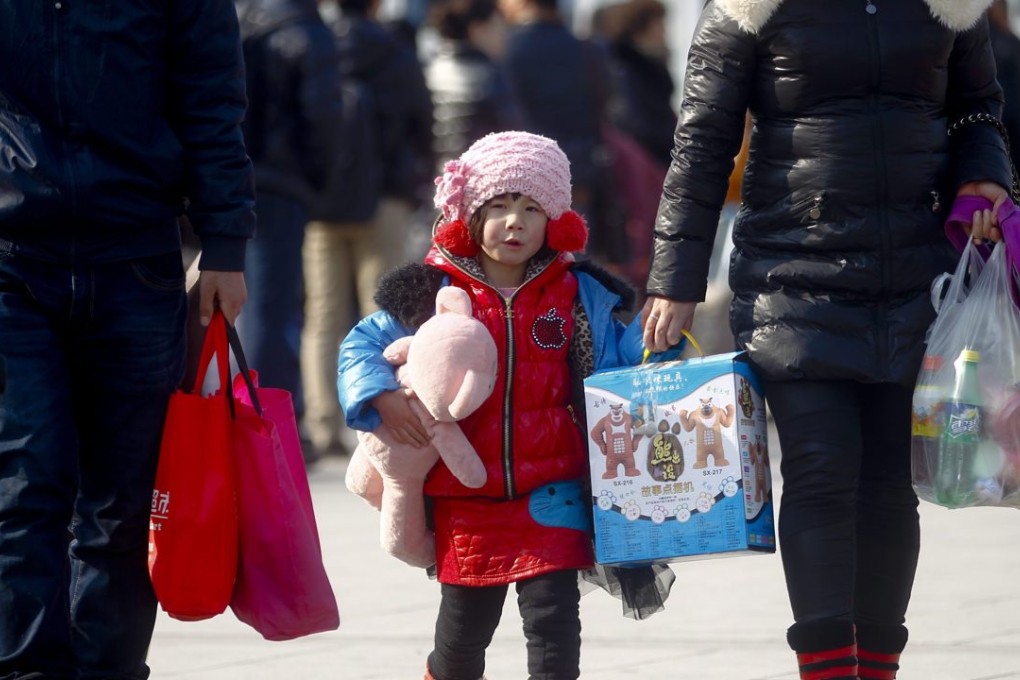Update | Baby formula and diaper sales likely winners in expected retail consumption boom as China drops one-child policy, says Credit Suisse
In the wake of child policy change, Credit Suisse’s forecast assumes ‘application rate’ of 5 to 10 per cent for 60 million mainland couples, resulting in as many as 6 million new births annually from 2017

A lot of foreign friends asked me during the weekend if I was considering having two kids in future given China eased the population control policy. My answer was that, well, considering the cost and pressure of raising kids in today’s China, I prefer having none.
Many Chinese young people are holding a similar opinion to me, as the Fifth Plenum of the China Communist Party’s Central Committee closed on October 29 officially abandoned the 35-year-old one-child policy. In fact, this policy was softened in late 2013 as couples were allowed to have two children should one of the parents be from a household without siblings.
Many analysts said this policy reversal is too late to avert China’s ageing demographic problem in coming years, but they remain divided on how large the demographic headwind will impact the macro economy.
Credit Suisse said in a report issued Friday that the relaxation means 3 to 6 million additional babies per year in the next five years from 2017, assuming an annual “application rate” of 5-10 per cent on the currently eligible 60 million couples.
This means a population boost of 17-33 per cent from the current 16.5 million new-born babies per year, bringing the annual stock of new borns back to the 1990s level.
“This population boost will lead to a demand increase in the most directly-related sectors including baby formula, diapers, medication, kids wear, and appliances. Assuming cost of raising at 40,000 yuan per year, additional consumption will be 120-240 billion yuan per year from 2017, translating into 4-9 per cent of total retail sales,” the report said.
This population boost will lead to a demand increase in the most directly-related sectors including baby formula, diapers, medication, kids wear, and appliances
